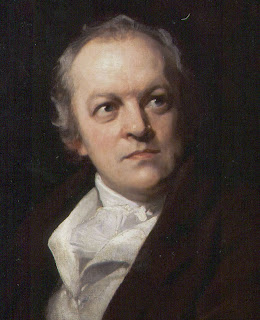Lewis Carrol, pseudônimo do escritor, poeta e matemático inglês Charles Lutwidge Dodgson. Autor de clássicos da literatura mundial como: Alice no país das maravilhas e Alice no país do espelho, obras que mesclam fantasia infantil, psicodélia e estilo nonsense, podendo serem consideradas um dos principais germes da poesia e prosa modernas, com ênfase as vanguardas europeias, tais como: o Dadaísmo e o Surrealismo.
Para vocês trago hoje uma tradução do poema “Jabberwocky” um dos poemas nonsense do livro Alice no País do Espelho de 1871. Sinceraramente essa tradução me deu muito trabalho, pois muitas das palavras do poema não têm tradução, algumas foram simplesmente inventadas por Carrol. Em suma, Jabberwocky ou Jaguadarte é uma criatura notável que caracteriza muito bem o estado de euforia poética de Carrol. Boa leitura!!!!
JABBERWOCKY
Lewis Carroll
Did gyre and gimble in the wabe.
All mimsy were the borogroves
And the mome raths outgrabe.
"Beware the Jabberwock my son!
The jaws that bite, the claws that catch!
Beware the Jubjub bird
And shun the frumious Bandersnatch!"
The jaws that bite, the claws that catch!
Beware the Jubjub bird
And shun the frumious Bandersnatch!"
He took his vorpal sword in hand
Long time the manxome foe he sought
So rested he by the Tumtum tree,
And stood awhile in thought.
Long time the manxome foe he sought
So rested he by the Tumtum tree,
And stood awhile in thought.
And, as in uffish thought he stood,
The Jabberwock, with eyes of flame,
Came whiffling through the tulgey wood,
And burbled as it came!
The Jabberwock, with eyes of flame,
Came whiffling through the tulgey wood,
And burbled as it came!
One, two! One, two! And through and through
The vorpal blade went snicker snack!
He left it dead, and with its head
He went galumphing back.
The vorpal blade went snicker snack!
He left it dead, and with its head
He went galumphing back.
And hast thou slain the Jabberwock?
Come to my arms my beamish boy!
O frabjous day! Callooh! Callay!
He chortled in his joy.
Come to my arms my beamish boy!
O frabjous day! Callooh! Callay!
He chortled in his joy.
'Twas brillig, and the slithy toves
Did gyre and gimble in the wabe.
All mimsy were the borogroves,
And the mome raths outgrabe.
Did gyre and gimble in the wabe.
All mimsy were the borogroves,
And the mome raths outgrabe.
Jaguadarte
Tradução: Francisco Getúlio Sousa da Silva
Era tão luminal. Os gosmalhosos
giravam e regurgiravam nos fartagos,
todos os mimicurvos estavam goivestidos
e os farsaídos faziam gastrogagos.
Cuidado com o Jaguadarte, meu filho!
Mandíbula mordendo, garras pegando!
Cuidado com a ave Sobe-Sobe se esconda
do bravioso Vaimurrando.
Agarrando sua vorpal espada
ele procurou o inimigo Masculal,
depois descansou na árvore Blém-Blém
e ficou bem sonhanormal.
Estando ele dorminado na tardessência,
aparece o Jaguadarte com olhos de fogo,
sopranante na selva madeiraz,
garguleando tão castelouco.
Um, dois! Um, dois! Direto e direto
a lâmina vorpal foi tranôl-tranôl,
corpo que mata-mata, cabeça que corta-corta,
e ele triunfalantemente voltou.
Então venceste, mataste o Jaguadarte?
Venha aos meus braços, aveturomem, meu amor!
Que dia fabuloso! Viva! Vivoroso!
Ele gargalhante estava risonhador.
Era tão luminal. Os gosmalhosos
giravam e regurgiravam nos fartagos,
todos os mimicurvos estavam goivestidos
e os farsaídos faziam gastrogagos.



